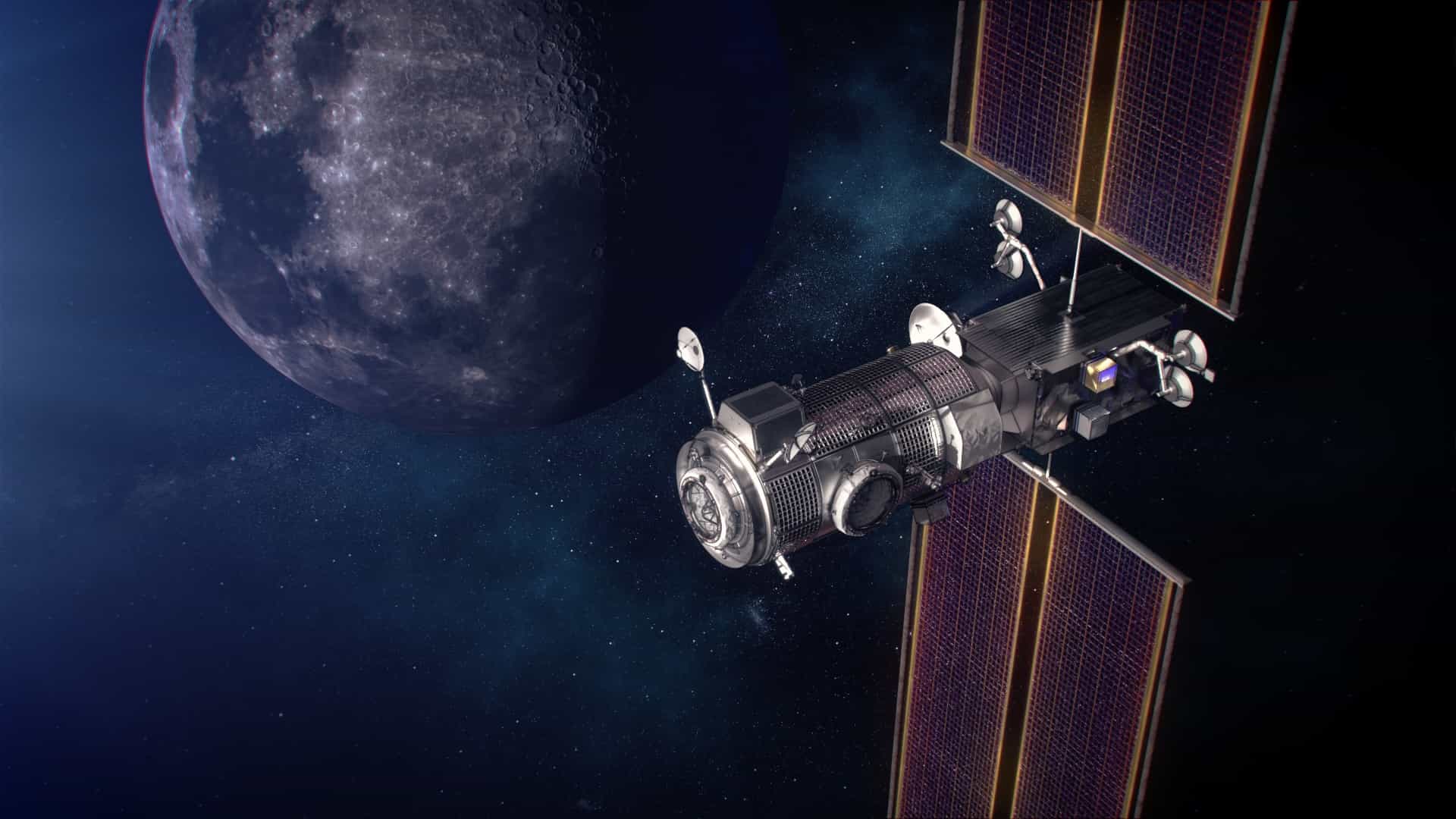
🌓 Base circling around the Moon first step to Mars and beyond
50 years after humanity’s first steps on the lunar surface, NASA endeavors to repeat its prowess, this time with a long-term project in mind.
Share this story!
There is no secret about it. Several nations and agencies, China and United States in the forefront, have designated Mars as their new target for inhabited space exploration. These announcements and the obstacles brought up by such groundbreaking missions sound particularly exciting. After the words, the time has now come to act.
To reach this goal, NASA’s rationale is straightforward: the best preparation for a human mission on Mars will be to practice once again on something we know. But this time, instead of merely visiting our moon, NASA intends to put in lunar orbit a durable outpost for vital and technical support: the Gateway.
One does not just send men and women to space like that! You need first to foresee as many problems as possible and provide quick solutions to them beforehand. Because once the astronauts are on, everything outside of their ship is hostile to their life. Take the Apollo 11 mission. Prior to it, five automated landers had hit the lunar ground, and one manned spacecraft had flown around the moon. Despite the risks, Neil Armstrong, Buzz Aldrin, and Michael Collins had all they needed to see their mission succeed.
Gateway stands as a pillar step on the way to Mars.

A base for further exploration
Think of it this way: when you plan a trip to a foreign country, you pick yourself a hotel room that will become your base before you explore nearby areas. Gateway will not differ much from your holiday hotels, except that NASA must build and send it itself first. It is designed to host components for regular moon landings, habitation, and logistics capabilities.
Firstly, Gateway will provide visiting astronauts with the Power and Propulsion Element (PPE), a 60-kilowatt solar electric propulsion module to ensure power supply in the whole outpost. Maxar Technologies has been selected to build the PPE.
Secondly, Gateway will offer shelter for visitors. For this purpose, it will include the Habitation and Logistics Outpost (HALO), a cabin to control, store, and communicate. North Grumman will oversee the design of Gateway’s living quarter.
Thirdly, Gateway will need logistics support for all incoming missions, either scientific or commercial. And without surprise, this part of the program will be in the hands of Elon Musk’s SpaceX. Their Falcon Heavy vehicle should launch the PPE and HALO together in November 2024.
Images: NASA
By becoming a premium supporter, you help in the creation and sharing of fact-based optimistic news all over the world.


